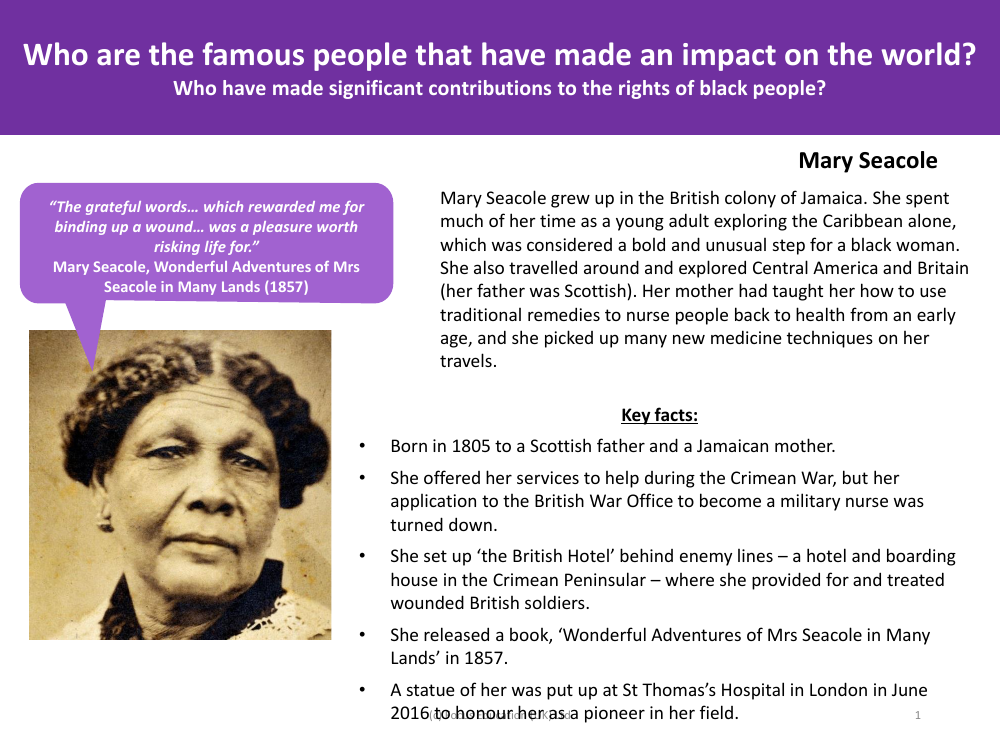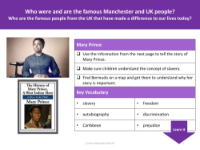Mary Seacole - Info sheet

History Resource Description
Mary Seacole is a figure of historical significance, celebrated for her remarkable contributions to nursing during the Crimean War. Born in 1805, she was the daughter of a Scottish father and a Jamaican mother. Despite facing rejection from the British War Office when she offered her services as a military nurse, Seacole's determination did not waver. She independently established 'the British Hotel' on the Crimean Peninsula, a facility that functioned as a hotel and boarding house, where she dedicated herself to the care and treatment of wounded British soldiers. Her legacy is not only in her brave actions but also in her literature; in 1857, she published 'Wonderful Adventures of Mrs Seacole in Many Lands', an insightful account of her experiences.
Seacole's early life in Jamaica was influenced by her mother, who imparted to her the knowledge of traditional healing practices. As a young adult, she exhibited a spirit of adventure and independence, travelling alone throughout the Caribbean—a bold move for a black woman at the time. Her journeys also took her through Central America and Britain, where she furthered her understanding of medicine. In recognition of her pioneering work in nursing and her impact on the world, a statue was erected in her honour at St Thomas's Hospital in London in June 2016, cementing her status as an influential figure in the history of healthcare and the rights of black people.







